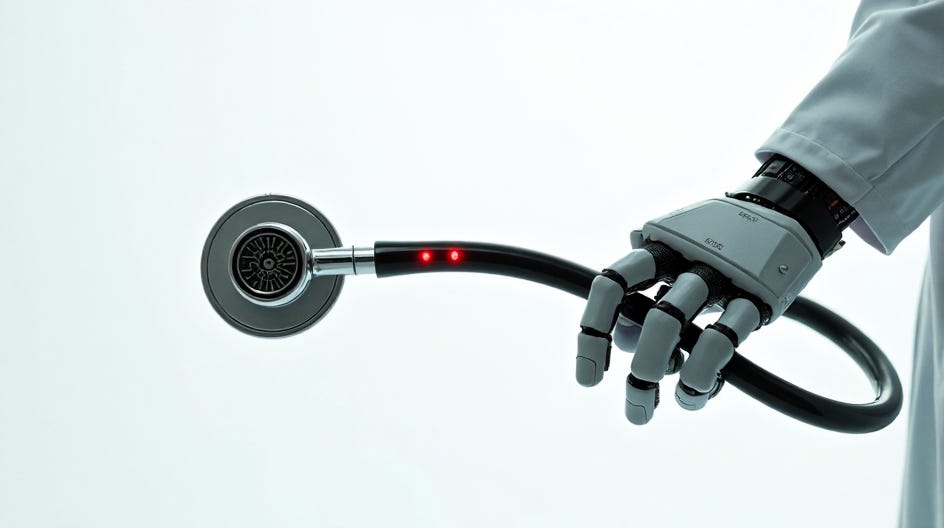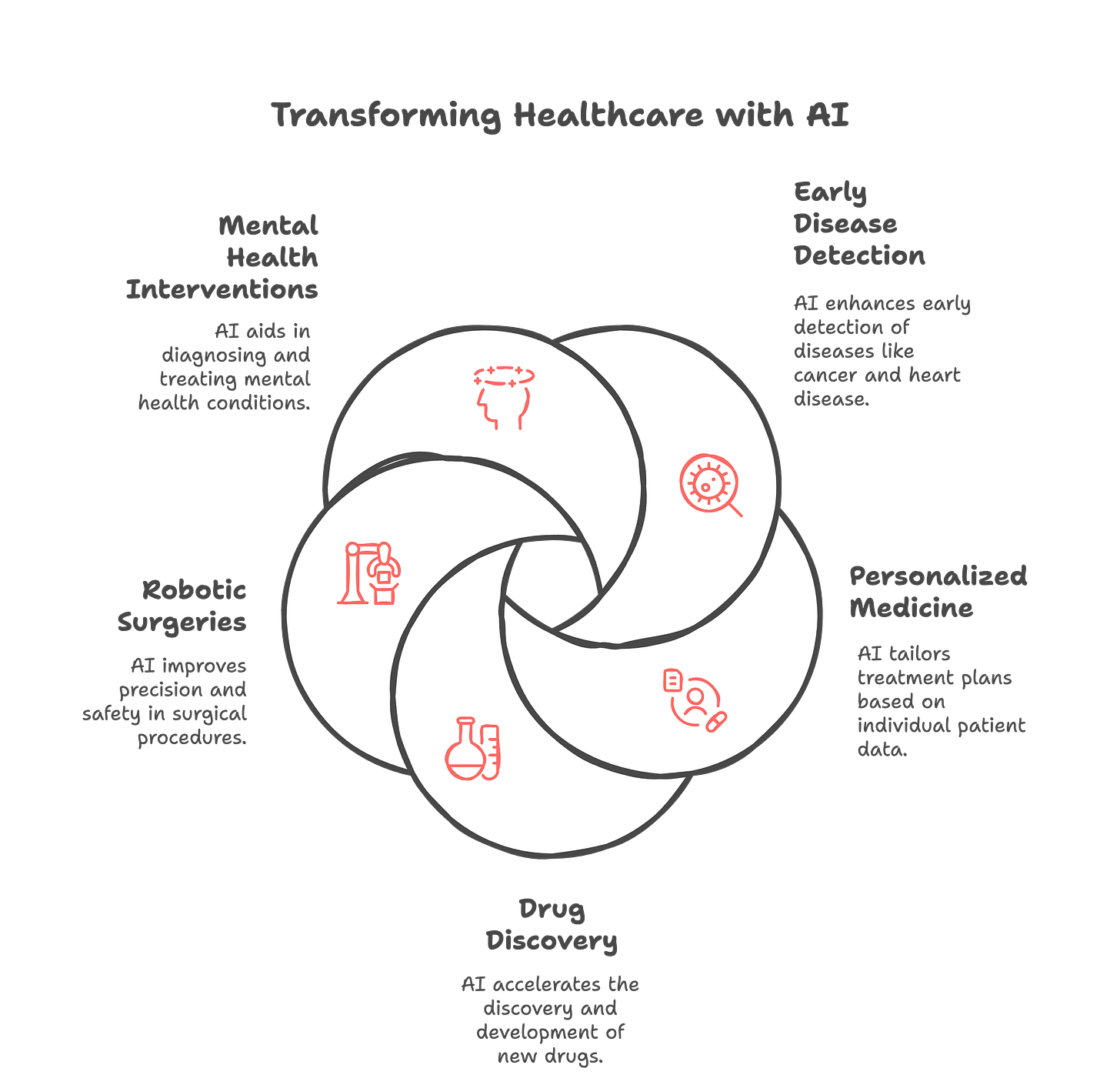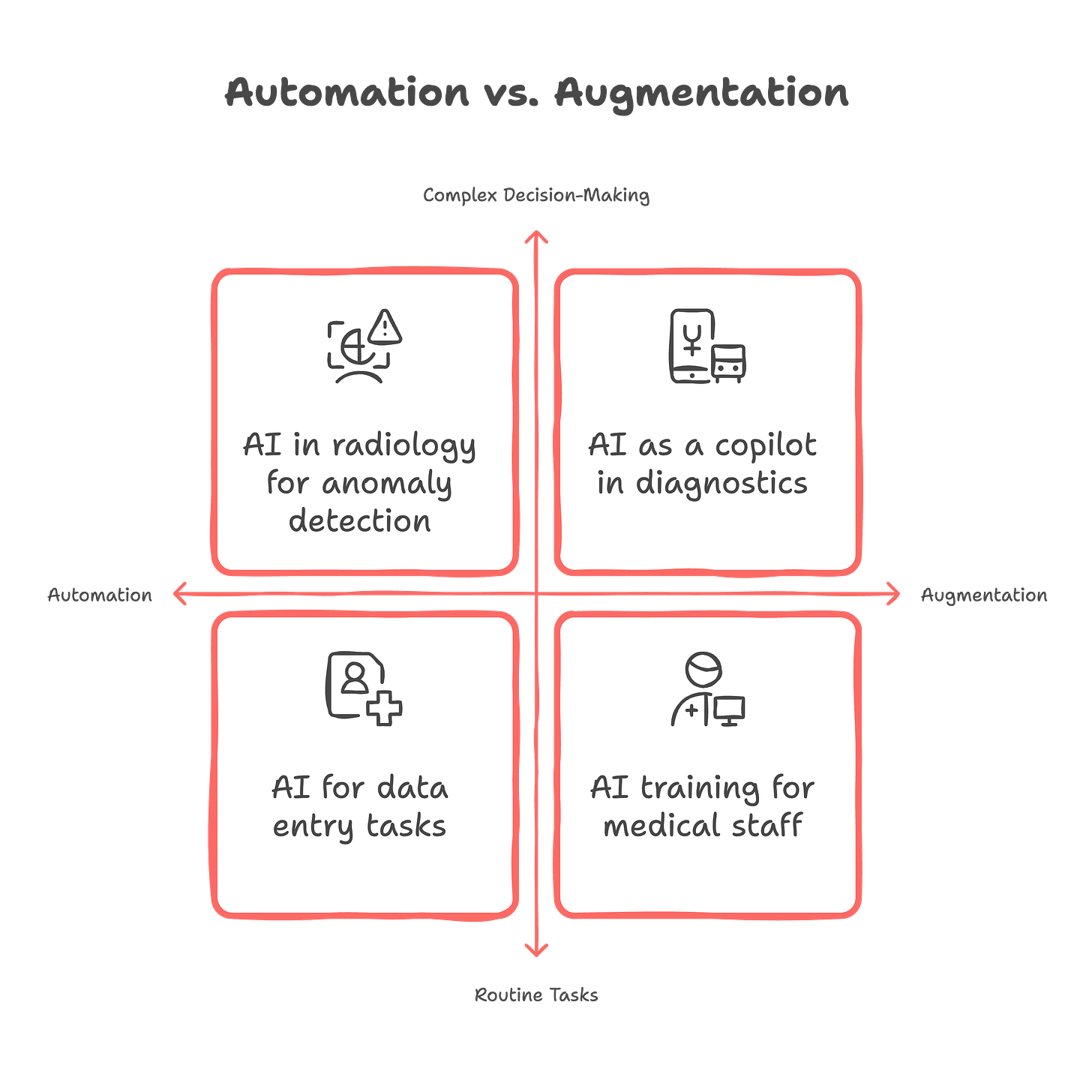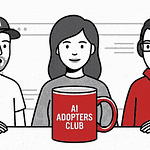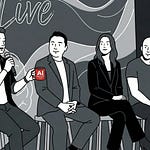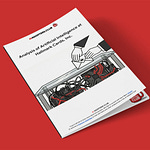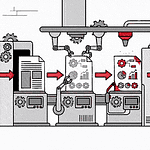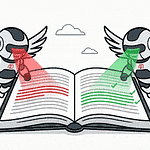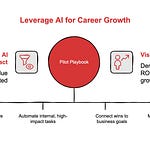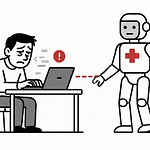Hey Adopter,
Had a fascinating chat with Doug Hohulin this week about AI in healthcare, and it sent me down a rabbit hole of research that I need to share with you. Forget the usual AI hype – let's talk about what's actually happening in the trenches of healthcare transformation.
Connect with Doug Hohulin: https://www.linkedin.com/in/doughohulin/
His Books:
2030: A Blueprint for Humanity's Exponential Leap https://amzn.to/4gGgjMW
Tech Powered Healing: The Future of Medicine in the AI Age https://amzn.to/4aYVoTM
The Big Picture No One's Talking About
You've probably heard the ambitious claim: "AI will save a billion lives." Sounds like typical Silicon Valley hyperbole, right? But here's the thing – the numbers actually add up, just not in the way most people think.
Take this mind-bending stat: AI-powered early detection systems are already catching breast cancer 20% more accurately than human radiologists alone. Not in some lab experiment, but in a real trial with 80,000 women. And here's the kicker – it actually reduced radiologists' workload by 44%.
But that's just the tip of the iceberg.
The Silent Revolution
While everyone's obsessing over chatbots, some genuinely wild stuff is happening:
Remember the COVID vaccine sprint? Moderna had their mRNA vaccine ready for trials in 42 days. Not because of some breakthrough in biology, but because they'd been using AI to optimize their mRNA platform for years. That's the difference between a pandemic lasting months versus years.
Or consider this: Johns Hopkins deployed an AI system that reduced sepsis deaths by 20%. Not through some fancy robot surgery, but by catching warning signs hours before humans typically notice them. In healthcare, hours don't just matter – they're often the difference between life and death.
The Plot Twist
But here's where it gets interesting. BlueDot's AI flagged the COVID-19 outbreak in Wuhan on December 31, 2019 – over a week before the WHO's official alert. An AI system, scrolling through local news and airline data, essentially saw a pandemic coming before the world's premier health organization did.
The Dark Side We Need to Talk About
Let's get real for a minute. In 2019, researchers uncovered something disturbing: a widely used hospital algorithm was systematically discriminating against Black patients. Not because anyone programmed it to be racist, but because it used healthcare spending as a proxy for medical need. The result? Black patients had to be significantly sicker than white patients to receive the same level of care.
This isn't just a technical glitch – it's a stark reminder that AI can amplify existing inequalities if we're not careful. But here's the silver lining: once exposed, this bias could be corrected. Try doing that with human bias, which often goes undetected for decades.
The Real Revolution Isn't Robots
The most profound change happening isn't what you'd expect. AI is handling the grunt work – the endless data entry, the routine scans, the repetitive tasks that burn out healthcare workers. European studies suggest AI could free up 1.8 billion work hours annually in healthcare. That's equivalent to adding 500,000 full-time healthcare professionals to the workforce.
Think about that. The real promise isn't AI replacing doctors – it's AI giving them back the time to actually be doctors. As Dr. Eric Topol puts it, "The greatest opportunity offered by AI is not reducing errors or workloads, or even curing cancer: it is the opportunity to restore the precious and time-honored connection and trust – the human touch – between patients and doctors."
Looking Ahead
We're at a fascinating inflection point. By 2030, experts project AI could prevent about $150 billion in healthcare costs annually. But more importantly, it could help bridge the healthcare access gap affecting 4.5 billion people worldwide.
The next decade won't be about robots performing surgery (though that's happening too). It'll be about AI democratizing expertise, catching diseases earlier, and making healthcare more human by handling the inhuman parts of the job.
After diving into this research and chatting with Doug, I'm convinced we're looking at healthcare's transformation all wrong. It's not about AI doing the impossible – it's about AI making the possible accessible to everyone.
Your weekend reading: Check out this MIT study about how AI discovered a new antibiotic by screening molecules in ways humans never could. It's a perfect example of AI not replacing human intelligence but expanding what we can achieve.
Adapt & Create,
Kamil
P.S. Yes, I genuinely believe we'll save those billion lives. Not through any single breakthrough, but through thousands of small improvements adding up to something revolutionary. Just like how AI actually works – less magic, more methodical progress.



